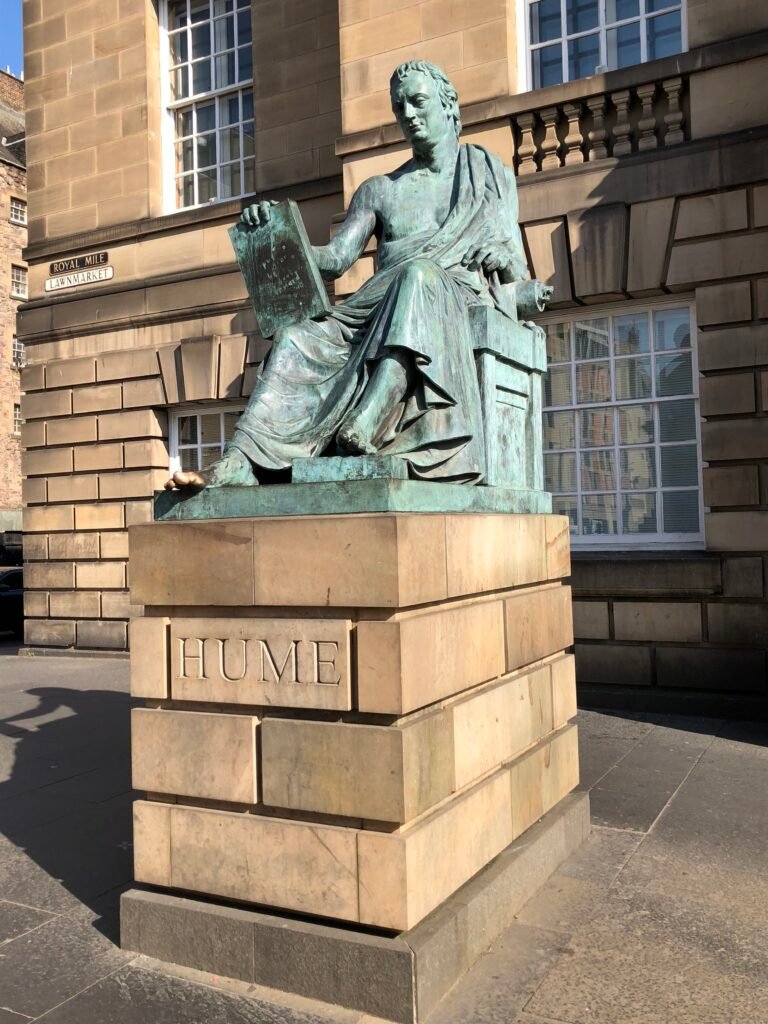Physical Address
304 North Cardinal St.
Dorchester Center, MA 02124

David Hume, a towering figure of the Scottish Enlightenment, continues to be one of the most respected and studied philosophers in modern times. Born in 1711, Hume’s work laid the foundation for many contemporary discussions in philosophy, particularly in the areas of empiricism, skepticism, and the nature of knowledge. Hume was deeply concerned with how humans understand the world, the role of reason versus emotion, and the limitations of human knowledge. His ideas, though radical at the time, have had an enduring impact, shaping discussions on science, morality, and even aesthetics.
In this article, we explore five of Hume’s most thought-provoking quotes, their meanings, and how his wisdom remains relevant in today’s world.
This quote captures Hume’s naturalistic worldview and his skepticism about the special significance humans often attribute to themselves. Hume believed that from the perspective of the vast and indifferent universe, human life is no more meaningful than that of any other creature. This challenges the anthropocentric view that humans are at the center of existence.
In today’s context, this quote is particularly relevant in environmental and ecological discussions. As humanity faces the consequences of climate change and biodiversity loss, Hume’s words remind us that all life forms have value, and humans are just one part of a larger ecosystem. It encourages humility and respect for the natural world, rather than dominion over it.
Hume’s view on reason and emotion was revolutionary for his time. He argued that human actions are not primarily governed by rational thought, but by emotions and desires. Reason, according to Hume, serves our passions, helping us achieve what we already want rather than dictating what we should desire.
This insight resonates strongly in today’s world, particularly in psychology and behavioral economics. Modern research shows that humans often make decisions based on emotions, with reason playing a secondary, supportive role. Hume’s recognition of the power of emotion over rationality can be seen in everything from consumer behavior to political decision-making, where emotional appeals often outweigh logical arguments.
For Hume, much of what we do and believe is based on custom and habit rather than careful reasoning. This quote reflects his belief that tradition and societal norms shape our behavior more than abstract philosophical principles.
In contemporary times, this idea is particularly relevant when examining cultural practices and social conventions. From daily routines to societal structures, much of our behavior is driven by long-standing customs. Hume’s insight helps explain why change can be difficult, as people are often reluctant to challenge deeply ingrained habits, even in the face of new information or rational arguments.
Hume’s thoughts on aesthetics were deeply subjective, suggesting that beauty is not an inherent quality of objects but something that exists in the perception of the observer. What one person finds beautiful, another may not, as beauty is dependent on individual experience and emotional response.
This idea remains significant today, particularly in discussions around art, fashion, and culture. In an era of social media, where people share their tastes and preferences, Hume’s view of beauty reminds us that what is considered “beautiful” is highly personal and culturally influenced. It encourages tolerance for diverse perspectives on art and aesthetics, promoting the idea that beauty truly is in the eye of the beholder.
Hume was a champion of skepticism and empiricism, advocating that our beliefs should be based on evidence and not on superstition or mere tradition. This quote reflects his commitment to a rational, evidence-based approach to knowledge.
In today’s world, where misinformation spreads rapidly, this quote could not be more relevant. The importance of evidence-based belief is critical in areas such as science, medicine, and public policy. From the importance of scientific rigor in dealing with health crises to the role of evidence in addressing climate change, Hume’s advice serves as a reminder to think critically and prioritize facts over speculation.
David Hume’s insights into the human condition, knowledge, and perception are as relevant today as they were in the 18th century. His skepticism about human importance, his emphasis on the power of emotion over reason, and his insistence on evidence-based beliefs are all crucial to understanding the modern world. Whether we are grappling with environmental issues, navigating cultural norms, or debating the nature of beauty, Hume’s philosophy offers a timeless guide to thinking critically and living wisely in an ever-changing world.